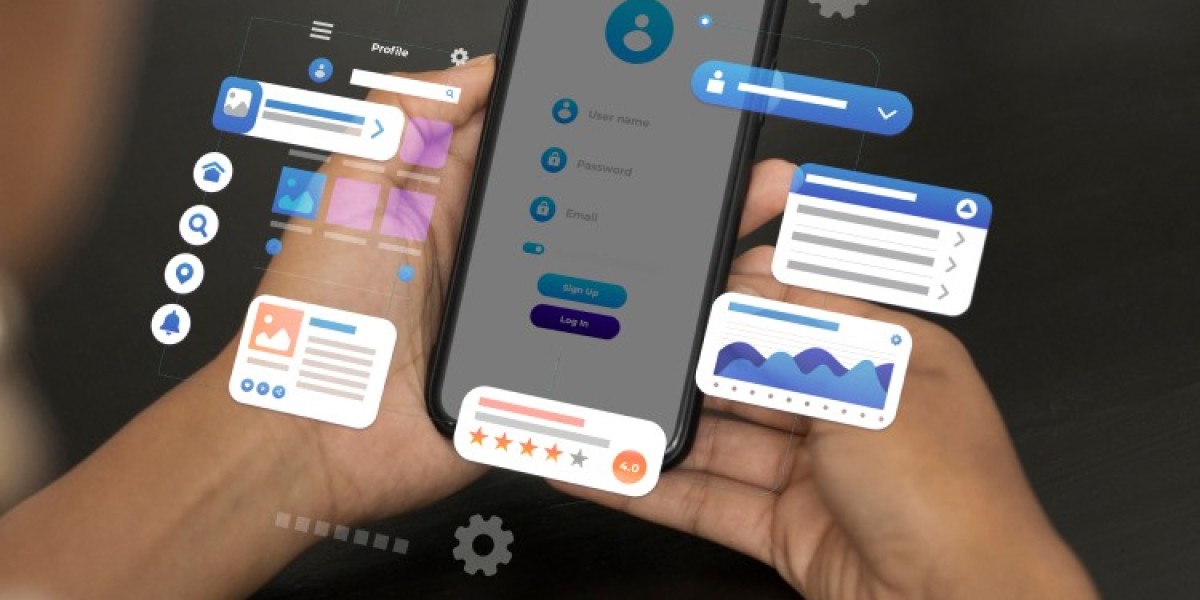In today’s fast-paced digital world, startups need to be agile and cost-effective to compete. One of the most impactful decisions they face is choosing the right approach to app development. For many startups, hybrid app development offers a compelling solution. This approach not only addresses the need for a versatile and efficient app but also aligns with the financial constraints common among new ventures. In this blog, we’ll explore why hybrid app development is the best choice for startups, highlighting its benefits, challenges, and practical implications.
Understanding Hybrid App Development
Hybrid app development refers to the creation of applications that are designed to work on multiple platforms using a single codebase. Unlike native apps, which are developed separately for each operating system (iOS, Android), hybrid apps are built using web technologies such as HTML, CSS, and JavaScript, and then wrapped in a native container that allows them to run on different platforms. This approach combines the best of both worlds: the flexibility of web apps and the functionality of native apps.
Benefits of Hybrid App Development for Startups
1. Cost-Effectiveness
For startups, managing costs is crucial. Developing separate native apps for different platforms can be expensive and time-consuming. Hybrid app development simplifies this by allowing developers to write a single codebase that works across multiple platforms. This significantly reduces development costs and time, making it an attractive option for startups with limited budgets.
2. Faster Time-to-Market
In the competitive startup environment, getting to market quickly can make a significant difference. Hybrid app development accelerates the development process because developers only need to code once for multiple platforms. This speed-to-market advantage can help startups seize opportunities and stay ahead of competitors.
3. Consistent User Experience
Hybrid apps provide a consistent user experience across different platforms. Since the same codebase is used for all platforms, startups can ensure that their app offers a uniform look and feel, regardless of whether it’s being used on iOS or Android. This consistency is crucial for building a strong brand identity and user loyalty.
4. Easier Maintenance and Updates
Maintaining and updating apps can be a challenge, especially when dealing with multiple codebases. Hybrid app development simplifies this process by allowing startups to update their app in one place. Changes made to the codebase are automatically reflected across all platforms, streamlining maintenance and reducing the risk of errors.
Challenges of Hybrid App Development
While hybrid app development offers many advantages, it’s important for startups to be aware of potential challenges.
1. Performance Limitations
Hybrid apps may not always match the performance of native apps, especially for resource-intensive applications. Performance can vary depending on the complexity of the app and the efficiency of the development framework used. However, for many startups, these performance issues are minimal compared to the benefits of reduced development time and costs.
2. Access to Native Features
Although hybrid apps can access most native features, there may be some limitations compared to native apps. Certain advanced functionalities or hardware features might not be fully supported by hybrid frameworks. Startups need to evaluate whether their app requires extensive use of such features and if a hybrid approach will meet their needs.
Key Hybrid App Development Frameworks
Several frameworks facilitate hybrid app development, each with its own strengths and use cases. Popular options include:
- React Native: Developed by Facebook, React Native allows for the creation of high-performance apps with a native feel. It’s known for its reusable components and robust community support.
- Flutter: Created by Google, Flutter provides a rich set of pre-designed widgets and high performance. It’s ideal for startups looking for a highly customizable and visually appealing app.
- Ionic: Built on web technologies, Ionic is known for its flexibility and ease of use. It’s a good choice for startups that need a quick and cost-effective solution.
Making the Right Choice for Your Startup
When deciding on the best approach to app development, startups should consider their specific needs, budget, and long-term goals. Hybrid app development offers a balanced solution that aligns well with the constraints and demands of startup life. By leveraging the benefits of hybrid frameworks, startups can build versatile, cost-effective, and maintainable apps that cater to a wide audience.
Conclusion: hybrid app development stands out as a smart choice for startups aiming to optimize their resources while delivering a high-quality user experience. With its cost-effectiveness, speed, and consistency, hybrid app development provides a strong foundation for startups looking to make their mark in the app market. By understanding both the benefits and challenges, startups can make informed decisions and embark on a successful app development journey.









